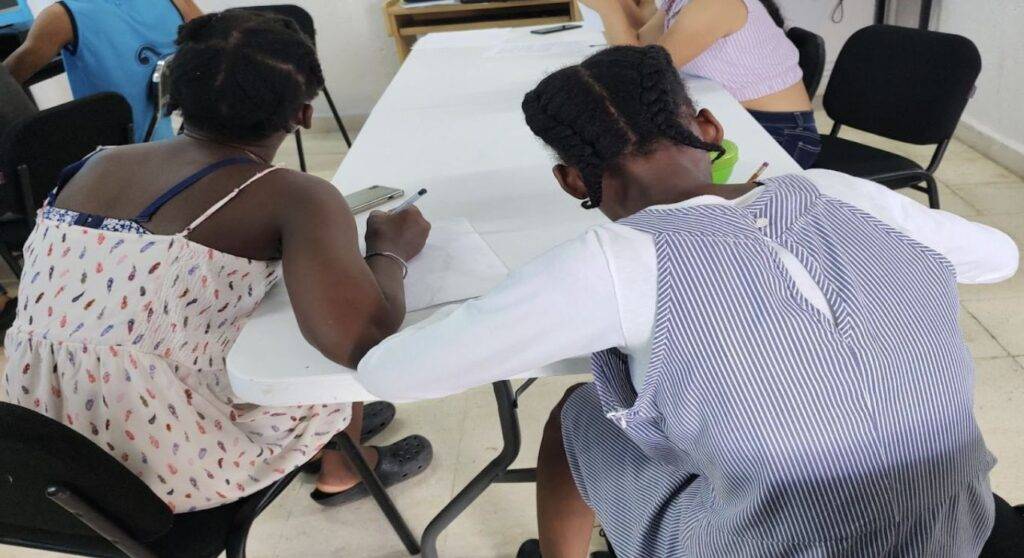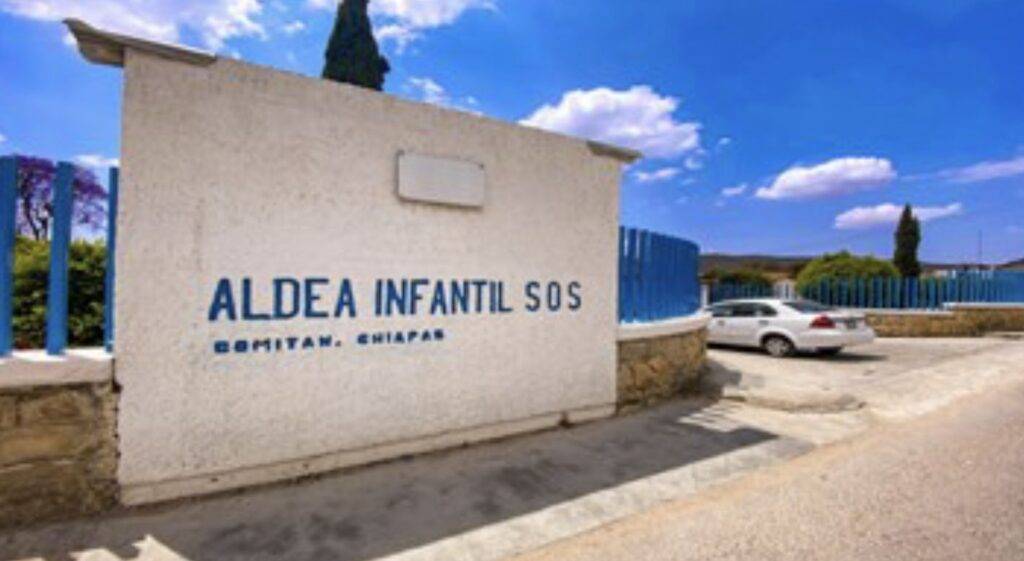Migrant Youth Leadership Curriculum Implemented by SOS Children’s Villages in Comitan, Mexico
Guest Blog Written By Olga Carolina Abarca Alfaro, Psychologist, AISOS Comitán
International Detention Coalition and SOS Children’s Villages have once again joined forces – this time to implement a project aiming to support migrant children and young people who have been detained or who are at risk of detention, to share their life stories and feel stronger as leaders. While the project contributes to raising awareness related to the psychosocial impacts of detention, it also enables children and young people to reclaim their agency, participate in developing proposals for regulatory and public policy changes, and contribute to long-term systemic change.

SOS Children’s Villages is an international, non-governmental organisation that works to restore the right of children to live in a family. This refers to children who, for a variety of reasons, no longer have families to care for them, or are at risk of this happening. Since the first “caravan” of people seeking refuge entered Mexico in October 2018, SOS Children’s Villages has worked in Comitan, Chiapas, the southernmost part of Mexico, to provide shelter and support to migrant communities, including many unaccompanied children.
IDC and SOS Children’s Villages have collaborated closely over the past seven years to advocate for an end to child immigration detention and alternatives to detention. This most recent project in August-September 2022, implemented the “Migrant Youth Leadership” curriculum, which was a workshop series aimed at understanding the experience of migrant children and young people who have been detained or who are at risk of detention, and supporting their growth and leadership.

Eleven adolescents – 7 girls and 4 boys – participated in the project, originating from Honduras, Nicaragua, El Salvador, Haiti, or Ecuador. The participants were referred to SOS Children’s Villages in Comitan by the immigration authorities, and continued their asylum and immigration procedures with support from SOS Children’s Villages. At the time of the project, the participants had been in the programme for an average of one year.
The young people participated in curriculum workshop sessions with the following results:
The highest levels of participation were seen during the “Human Rights” session, in which tools regarding the respect of rights were shared. Participants shared their opinions and perspectives, and proposed ways in which more young people could access the information provided.
Participants identified their own lack of awareness of universal rights, as well as of their particular rights as migrant children, as a key factor contributing to their rights being violated.
When sharing their experiences, the participants emphasised issues with their treatment after being “sheltered” by the National Institute for Migration (INM) immigration authorities, as well as the limited information they were provided.
Sharing their experiences of what had caused them to leave their countries of origin was highly significant. Many travelled with the dream of getting to the United States to join family who live there, such as parents, siblings or aunts and uncles, while others were forced to leave their home countries as a result of harassment, violence, and threats from criminal gangs.
The emotional impact of their experiences was also an important issue for the participants. The curriculum includes a session on “Healing and Wellbeing,” in which each participant was given the opportunity to speak and express their emotions. They shared feelings about being far from home, their family and their friends, about having to abandon their dreams, about the frustration, stress, anxiety, sadness, and anger experienced when confronting obstacles during their transit. The workshops provided a space for much reflection and listening, and participants began to understand that sharing their emotions could contribute to improving their wellbeing. The session also offered tools for managing their emotions in order to better address their emotional health.
It is important to mention that the adolescents were interested in all the topics contained in the curriculum, and they appreciated that organisations, such as SOS Children’s Villages and IDC, provided these tools and methodologies. They were also grateful for a safe space in which to participate and be heard.
It is hoped that this curriculum will continue to be implemented and that more migrant children and young people have the opportunity to obtain information and develop better tools for strengthening their resilience and leadership.
